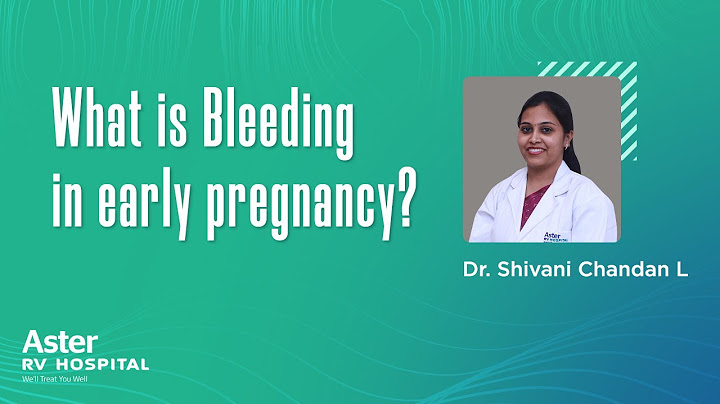Trying to conceive can be stressful. Getting pregnant requires a series of events that must each happen at just the right moment. Show When you research the whole conception process, you realize that there’s only a very small window in which a woman can get pregnant — a window that can be hard to figure out if your menstrual cycles aren’t exactly clockwork. If you have a condition that can impact your cycle like polycystic ovary syndrome (PCOS), it’s not impossible to get pregnant — but it can be significantly more difficult. And you may have questions, like:
So why is PCOS an issue when it comes to getting pregnant? Generally speaking, PCOS is a hormonal condition that can impact your fertility. Common symptoms associated with the condition include:
With PCOS, essential hormones necessary for a regular menstrual cycle — estrogen, progesterone, luteinizing hormone (LH), and follicle-stimulating hormone (FSH) — aren’t present in the necessary levels. This equates to the body not always ovulating (releasing a mature egg) on its own. No ovulation = no egg to fertilize = no pregnancy. It’s in the few days before ovulation up until the day after that you’re most fertile. Often women with PCOS — who may not ovulate as often as those without — must guess when they think they’re ovulating. This is because they may not get the same telltale signs that others would use as reliable indicators. With the exception of a missed period or morning sickness, most early pregnancy symptoms are frustratingly similar to regular symptoms of an impending period. These include common symptoms such as:
Sounds familiar, right? But if you routinely have an irregular menstrual cycle because of PCOS, you might not get those key indicator signals — or you may assume you’re getting your period or just having symptoms of your condition. Here are a couple of things to remember:
Women with PCOS are generally advised to avoid using “early result” pregnancy tests — you know, the ones that claim on the front of the box that they can detect pregnancy 6 days before your missed period — as it’s not uncommon to get false negatives with such tests. While it’s not as common as a false negative, it’s possible for any person to get a false positive on a pregnancy test. However, PCOS is not the culprit if you get one of these rarities. Specifically, pregnancy tests rely on the presence of human chorionic gonadotropin (hCG) — the “pregnancy hormone” — to determine whether you’re pregnant or not. And that’s not a hormone that’s directly affected by PCOS. However, if you’re undergoing fertility treatments that require taking certain medications, you may have detectable hCG (from the medication) that can lead to a false positive pregnancy test result. Other common causes of a false positive include:
There’s one other possibility that we don’t like to talk about: If you have PCOS, your risk of early miscarriage is higher. So it’s possible to initially test positive for pregnancy and then experience a negative result with a later test. Your hormone levels are irregular when you have PCOS, so false negatives are definitely possible. You may attempt to test for pregnancy shortly after your missed period and get a negative result even though you’ve conceived. In fact, some women with PCOS may not discover they’re pregnant until many weeks after conception. So again, avoid those early pregnancy tests. You may even want to test well after your expected period to avoid false positives or negatives. If getting pregnant is your goal, speak with your physician as there are options to help increase your chances of getting pregnant. These include:
RECALL OF METFORMIN EXTENDED RELEASE It’s not a secret that PCOS can make conceiving harder simply because you don’t have the reliability of a predictable menstrual cycle to anchor your timeline. But that doesn’t mean that it’s impossible or that you should give up on pregnancy. Focus on testing for a positive result well after the date of your expected period has passed. You’ll be more likely to receive an accurate result as opposed to relying on early pre-period testing methods that can lead to faulty results for women with PCOS. Always confirm pregnancy with a blood test ordered by a doctor. And work with an OB-GYN familiar with PCOS throughout your pregnancy — it’ll give you peace of mind. Can a corpus luteum cyst mimic pregnancy?Symptoms. The most common symptom in those who do take notice of a corpus luteam cyst is a slight twinge of one-sided pain or mild tenderness during the menstrual cycle. However, if there is some pain, it can mimic the type of pain associated with an ectopic or tubal pregnancy.
Does a corpus luteum cyst produce HCG?The Corpus Luteum and Conception
This early placenta releases the hormone human chorionic gonadotropin (hCG, the hormone pregnancy tests detect). The presence of hCG signals the corpus luteum to continue secreting progesterone.
Can ovarian cyst affect HCG levels?Conclusion: Mature ovarian cystic teratomas have rarely been reported to secrete HCG. They can be an infrequent source of HCG production and may lead to emergency surgery to treat a suspected extra-uterine pregnancy.
Can a cyst be mistaken for early pregnancy?Cysts may be mistaken for an early pregnancy or twin. Detailed breeding history and thorough scanning technique is vital to avoid potentially costly mistakes. Uterine cysts are fluid filled, immobile, anechoic structures.
|

Related Posts
Advertising
LATEST NEWS
Advertising
Populer
Advertising
About

Copyright © 2024 pauex Inc.


















